Exploring the Future of Manufacturing Through Advanced CNC Machine Tools
The landscape of manufacturing is rapidly evolving, driven by the integration of advanced technologies, particularly in the realm of CNC machine tools. As industry experts emphasize, the future of manufacturing lies in harnessing these tools to enhance productivity and precision. Renowned CNC machine tools expert, Dr. Emily Rivera, puts it succinctly: "The advancements in CNC technology are not just about speed and efficiency; they are transforming the very way we conceive and execute manufacturing processes."

This insightful perspective invites us to explore the top five advancements in CNC machine tools that are poised to redefine the industry. From improved automation capabilities to the integration of artificial intelligence, each development offers new opportunities for manufacturers to optimize their workflows and achieve unprecedented levels of quality. As we delve into these innovations, it becomes clear that CNC machine tools will play a pivotal role in shaping a smarter, more efficient future for manufacturing.
With a strong emphasis on innovation and adaptability, manufacturers are encouraged to rethink their strategies in light of these technological advancements. The dynamic nature of CNC machine tools not only enhances operational efficiency but also positions businesses to remain competitive in an increasingly globalized market.
The Evolution of CNC Machining: A Historical Perspective
The evolution of CNC machining has significantly influenced modern manufacturing, serving as a precursor to advanced technologies such as 3D printing. Historically, CNC (Computer Numerical Control) machining arose in the 1940s and 1950s, revolutionizing production by enabling precise and automated machining processes. This historical context is crucial for understanding how the 3D printing industry can evolve. By assessing the lessons learned from CNC's trajectory—such as the importance of precision, repeatability, and scalability—3D printing can harness these insights to refine its own technological advancements.
**Tips:** Manufacturers considering the integration of CNC and 3D printing should focus on training their workforce to be proficient in both technologies. Leveraging CNC's established methodologies can streamline the adoption of additive manufacturing processes while maintaining quality standards.
Moreover, Protolabs’ transition from prototyping to full-service production exemplifies the adaptive nature of manufacturing environments. As they developed from their initial model, the company embraced CNC technology early on, which positioned them advantageously within the industry. This evolution underscores the necessity for businesses to remain agile and innovative, ensuring they can adapt quickly to emerging technologies and market needs.
**Tips:** Investing in research and development is essential for companies that wish to stay at the cutting edge. Monitoring industry trends and historical advancements can provide valuable insights that shape future strategies effectively.
Key Technologies Shaping Advanced CNC Machine Tools Today
The landscape of manufacturing is being reshaped by advanced CNC
(Computer Numerical Control)
machine tools, which leverage cutting-edge technologies to enhance precision and efficiency. Key
innovations, such as AI and multi-axis machining centers, are driving a significant shift in production capabilities.
As the global CNC machine tools market is projected to grow by
USD 21.9 billion by 2029, companies are increasingly integrating these advanced technologies to meet rising demands for
high-precision parts in various industries.
Tips for manufacturers aiming to optimize their production processes include investing in the latest CNC technologies and exploring automation solutions.
Emphasizing staff training on new systems can also maximize the benefits of advanced tools. Furthermore, maintaining a strong focus on data analytics helps manufacturers monitor performance and identify areas for improvement, ensuring they remain competitive in a rapidly evolving market.
As countries like China strengthen their grip on key sectors, including automotive and engineering, traditional powerhouses must adapt quickly.
Adopting advanced CNC machine tools not only supports efficiency but also fortifies global competitiveness.
Embracing these developments is essential for manufacturers looking to thrive amidst increasing international competition.
Impact of Automation and AI on Future Manufacturing Processes
The manufacturing industry is undergoing a transformative shift propelled by advanced CNC machine tools, enhanced by the integration of digital twin technology. This innovative approach allows for high-resolution modeling and precision in manufacturing processes, making it increasingly feasible to execute complex designs and optimize production lines. As a result, industries are witnessing an acceleration in product development and innovation. According to market predictions, the global artificial intelligence market is anticipated to grow from $294.16 billion in 2025 to $1.77 trillion by 2032, illustrating a compound annual growth rate (CAGR) of 29.2%. This growth highlights the significant role AI technologies, including digital twins, play in enhancing manufacturing efficiency.
Moreover, the advent of general artificial intelligence (AGI) over the next decade is set to revolutionize manufacturing operations. AGI, with its human-level intelligence capabilities, aims to emulate human reasoning and decision-making processes, significantly impacting production dynamics. As manufacturing entities begin to harness AGI, they can expect improvements in predictive maintenance, supply chain management, and operational efficiency, ultimately leading to more resilient and sustainable manufacturing ecosystems. Firms that adopt these technologies early will likely secure a competitive advantage in an increasingly automated and intelligent market landscape.
Sustainability in CNC Manufacturing: Innovations and Practices
Sustainability is becoming an increasingly critical focus in the realm of CNC manufacturing, with innovations that not only enhance efficiency but also foster environmental responsibility. Recent advancements, such as AI-powered CNC routers, are leading the charge by integrating smart automation with sustainable practices. According to a report by the Global CNC Machine Market, the adoption of sustainable technologies in manufacturing can reduce energy consumption by up to 30% while significantly lowering waste production. This integration aligns with a growing demand for greener production methods, as 72% of consumers express a preference for products made through sustainable processes.
Moreover, companies are prioritizing the use of naturally sourced materials and environmentally friendly production practices. The annual global market for sustainable manufacturing solutions is projected to reach $500 billion by 2028, indicating a robust trend toward eco-conscious manufacturing. As the industry evolves, organizations that embrace sustainability and innovation are not only enhancing their competitive edge but also contributing positively to the planet's future. This transformative approach is exemplified by businesses that have received recognition for their commitment to innovation in sustainable design and manufacturing techniques, solidifying the importance of sustainability as a cornerstone of modern CNC production.
Trends and Challenges in the Global CNC Machine Tool Market
The global CNC machine tool market is on an upward trajectory, projected to grow from $101.22 billion in 2025 to approximately $195.59 billion by 2032, marking a compound annual growth rate (CAGR) of 9.9%. This growth is underpinned by increasing demand across various manufacturing sectors, including automotive, aerospace, and electronics. The global machine tools market, valued at around $134.96 billion in 2023, is also expected to rise to $169.47 billion, demonstrating the robust expansion in this industry.
The Asia-Pacific region, particularly China and India, is anticipated to dominate the machine tools market, with significant contributions to both production and consumption. As companies continue to invest in automation and advanced technologies, CNC machine tools are becoming integral to enhancing productivity and precision in manufacturing processes.
**Tips:** To stay competitive, manufacturers should explore the latest CNC technologies that can optimize production efficiency and reduce lead times. Investing in employee training on these advanced tools can also help maximize their potential. Additionally, keeping an eye on market trends and customer demands will be essential for strategic planning and growth in this evolving market.
Trends in the Global CNC Machine Tool Market (2023)
This chart illustrates the projected growth in the CNC machine tool market, highlighting key segments based on application areas including automotive, aerospace, and medical devices. The data reflects market size in millions of dollars.
Related Posts
-
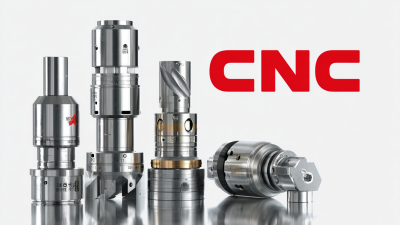
Unlocking Efficiency Through Innovative Applications of Best CNC Machine Tools in Various Industries
-
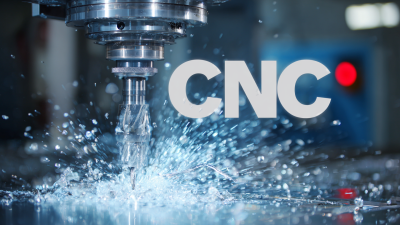
How to Select the Best CNC Machine Tools for Your Manufacturing Needs
-
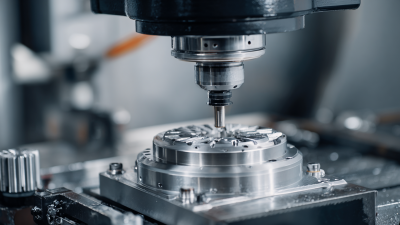
The Future of Precision: Advancements in Best CNC Machining Centers
-
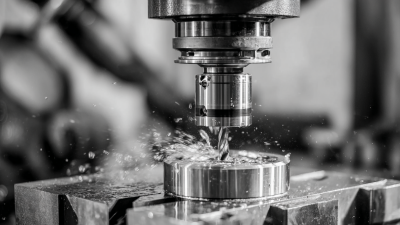
Discovering the Best Alternatives to CNC Machining Centers for Global Buyers
-
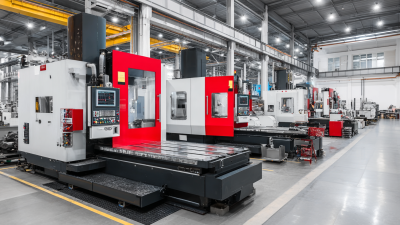
How to Choose the Right CNC Machine Tools for Your Business Needs
-
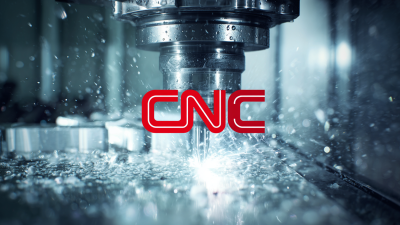
7 Reasons Why the Best 5 Axis CNC Milling Machines Are Essential for Modern Manufacturing
